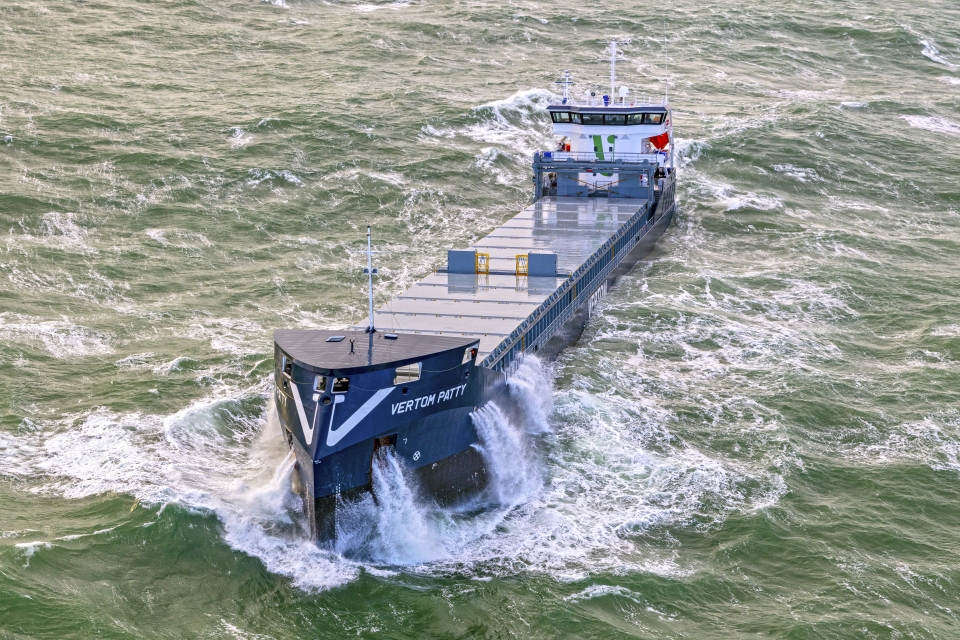Fortunately, residents of EU member states have the right to settle and also work freely in all 28 EU countries, including the Netherlands. And it is only right for our economy if this remains the case, because otherwise many more Dutch companies in the maritime manufacturing industry (MMI) may have to relocate their operations abroad because they cannot get enough skilled staff.
Surveys by industry associations currently see staff shortages as the sector’s main problem.
How it has come to this is perfectly described by Japke van Groning in her article in the context of SWZ|Maritime’s special on education and the labour market. But she also describes the solutions companies are looking for to still be able to fill their persistent vacancies. Van Groning’s message is that if education does not provide enough trained candidates, companies must roll up their sleeves themselves.
Also read: SWZ|Maritime’s December 2023 issue: Finland leads the way in shipbuilding
If education only delivers generally trained structural engineers, then, for example, superyacht builder Feadship will turn them into shipbuilding structural engineers itself.
Something similar is happening in Werkendam, important as a centre of inland shipbuilding with a large network of suppliers and outfitters. Here, too, the business community itself has taken up the gauntlet to provide personnel. And of course, more and more Polish license plates of professionally skilled workers who have become rare on the Dutch labour market are also popping up here. However, these are not underpaid, exploited asparagus pickers, but people who are simply paid decent Dutch salaries.
Also read: SWZ|Maritime’s November 2023 issue: This issue is all about engineering
But even those companies that rely mainly on highly skilled work, such as ship designer C-Job, struggle to find suitable staff. The good thing is that these may not be people directly trained as shipbuilders either, but that it can be people that do have the knowledge to design modern, more sustainable ships. Something we are fortunately still capable of in the Netherlands, as evidenced by the article by design firm Nevesbu on a study of a submarine powered by renewable energy.
And of course, our magazine cannot do without a detailed description of the winner of the KNVTS Ship of the Year Award, the rocket launcher transport ship Canopée equipped with wind-assisted propulsion. So plenty of interesting features in this January issue.
This is editor-in-chief Antoon Oosting’s editorial accompanying the January 2024 issue.
SWZ Archive
Our digital archive is once again available to subscribers and they can read the digitial version of our January issue there. Subscribers can register here to gain access. Not yet a subscriber? Visit our subscription page.
Also read: SWZ|Maritime’s October 2023 issue: Spread the word with this keepsake issue
The articles in SWZ|Maritime’s January issue
In addition to the regular sections such as Dutch news, Markets, Global news, book reviews, news from the KNVTS and Mars Report, the articles in the January issue are:
- Arbeidsmarkt en onderwijs in de maritieme sector
- Maritieme bijscholing van belang voor iedereen
- Navigating change
- Sailing through shifting times
- Canopée, a complex special
- WMI campus actief met trainingen in Werkendam
- Submarine power plants
- EU Emissions Trading System for ships kicks off
Picture: The Vertom Patty is the first of ten 7000-DWT diesel-electric multi-purpose dry cargo vessels that Thecla Bodewes Shipyards is building for Vertom Group. The vessel can easily be adapted to future fuels (photo Flying Focus).
Also read: SWZ|Maritime’s September 2023 issue: Yacht building is versatile and innovative








